 Groundwater Dispute Resolution Workshop
Groundwater Dispute Resolution Workshop
Participants
WORKSHOP PARTICIPANTS
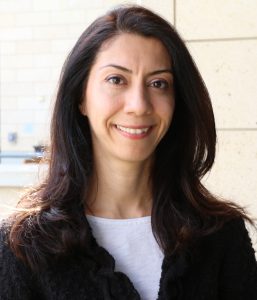 |
Newsha Ajami,Director of Urban Water Policy,Water in the West,Stanford University |
Newsha K. Ajami, PhD., is the director of Urban Water Policy with Stanford University’s Water in the West and NSF-ReNUWIt initiatives. She is a hydrologist specializing in sustainable water resource management, water policy, the water-energy-food nexus, and advancing uncertainty assessment techniques impacting hydrological predictions. Her research throughout the years has been interdisciplinary and impact driven, focusing on the improvement of the science-policy-stakeholder interface by incorporating social and economic measures and relevant and effective communication.
Dr. Ajami is a gubernatorial appointee to the Bay Area Regional Water Quality Control Board. Before joining Stanford, she worked as a senior research associate at the Pacific Institute from 2011 to 2013, and served as a Science and Technology fellow at the California State Senate’s Natural Resources and Water Committee where she worked on various water and energy related legislation. She was also a post doctorate researcher with the Berkeley Water Center, University of California, Berkeley. She has published many highly cited peer-reviewed papers in predominant journals, coauthored two books, and contributed opinion pieces to theNew York Times and the Sacramento Bee. She was the recipient of the 2005 National Science Foundation award for AMS Science and Policy Colloquium and ICSC-World Laboratory Hydrologic Science and Water Resources Fellowship from 2000 to 2003. Dr. Ajami received her Ph.D. in civil and environmental engineering from the University of California, Irvine, an M.S. in hydrology and water resources from the University of Arizona, and a B.S. in civil and environmental engineering from Tehran Polytechnic.
 |
Mary Bannister,General Manager,Special Acts District,Pajaro Valley Water Management Agency |
Mary Bannister, RG, CEG, General Manager, Pajaro Valley Water Management Agency, is a state of California registered geologist (RG) and certified engineering geologist (CEG) with a background in ground water management, contamination and supply projects. Ms. Bannister earned her bachelor degree in Earth Science from UC Santa Cruz. Ms. Bannister served as Technical Division Manager at PVWMA nine years prior to being named Interim General Manager and then General Manager, serving in those positions over the last four years. There were numerous challenges facing the Agency when she took on the leadership role including several lawsuits challenging the Agency’s rate structure. Ms. Bannister has successfully led the Agency and the Pajaro Valley community through the rigorous Proposition 218 rate process and is preparing to rebuild the Agency and restore the groundwater basin in one of the most fertile agricultural communities in the state and country.
The City of Watsonville is at the center of the Pajaro Valley and is considered an “Economically Disadvantaged” by the State of California. While harboring a strong agricultural economy, farm labor is typically lower paid and seasonal; the per capita income in Watsonville and Pajaro is about half the state and national average, at about $15,000/year in 2009.
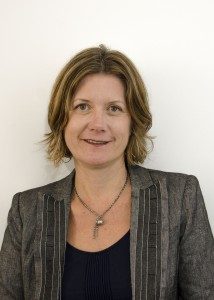 |
Gina Bartlett,Senior Mediator,Consensus Building Institute |
Gina Bartlett is a senior mediator with the Consensus Building Institute. Based in San Francisco, Ms. Bartlett has more than twenty years experience as a facilitator and mediator in consensus building and collaborative planning on public policy issues over a broad range of areas, including water and natural resources, land management, scientific and technical issues, energy, and education. Bartlett’s specialty is multi-party negotiation and problem solving in complex, high stakes cases. She often works with tribal, federal, and state governments, elected officials, non-governmental organizations, business, scientists, and other decision makers to negotiate and implement collaborative efforts. Ms. Bartlett designed and facilitated development of the Sonoma Valley and Santa Rosa groundwater management plans. She has mediated a number of complex water resources issues in California, including the Mono Basin and Owens Valley, integrated regional water management, the California Urban Water Conservation Council and California Water Plan. Ms. Bartlett is on the U.S. Institute for Environmental Conflict Resolution roster of senior mediators.
 |
Bushra Bataineh,Research Assistant,Water in the West,Stanford University |
Bushra Bataineh is a graduate student in Civil and Environmental Engineering at Stanford University. She has a master’s degree in environmental fluid mechanics and hydrology from Stanford and a bachelor’s degree in hydrologic sciences and policy. Her previous work experience includes developing water use efficiency plans for governorates in Jordan under a USAID program for water demand management, reorganizing and expanding an agricultural initiative in the Jordan Valley, and preparing a bid for a large water infrastructure project in Jordan. Bushra served as a research assistant for Water in the West, a joint program of the Woods Institute for the Environment and the Bill Lane Center for the American West, where she focused on assessing the role of hydrologic data in the groundwater adjudication process. Bushra also served as research coordinator for the Global Freshwater Initiative at the Woods Institute. Her current research, with the Global Projects Center at Stanford, is on local private sector participation in water infrastructure projects in developing countries.
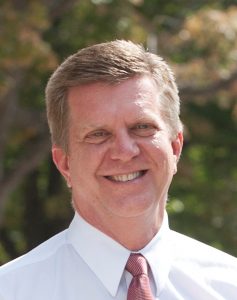 |
William Blomquist,Dean of the School of Liberal Arts,Indiana University-Purdue University Indianapolis |
William Blomquist is Dean of the School of Liberal Arts, Professor of Political Science, and Adjunct Professor of Public and Environmental Affairs at Indiana University Purdue University Indianapolis (IUPUI). He received his Ph.D. in Political Science from Indiana University-Bloomington in 1987. His research interests concern governmental organization and public policies, with a specialization in the field of water institutions and water management. His publications include four books– Embracing Watershed Politics (2008) with Edella Schlager, Integrated River Basin Management through Decentralization (2006) with Karin Kemper and Ariel Dinar, Common Waters, Common Streams (2004) with Edella Schlager and Tanya Heikkila, and Dividing the Waters (1992).
 |
Bruce Cain,Director,The Bill Lane Center of the American West, Stanford University |
The distinguished political scientist Bruce E. Cain is the faculty director of the Bill Lane Center for the American West and Charles Louis Ducommun Professor in Humanities and Sciences. Professor Cain succeeded the Center’s founding faculty co-director, David M. Kennedy, and is tasked with carrying on the Center’s study of the past, present and future of the American West. Professor Cain brings a wealth of experience in U.S. and California politics. A pioneer in computer-assisted redistricting, he is a well-known expert on elections, term limits, polling, and the relationships between lobbyists and elected officials. He is a frequently cited source in media coverage of politics.
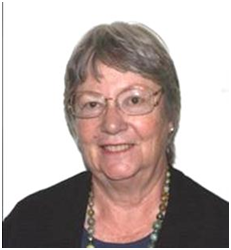 |
Virginia Cahill,Water Rights Professor,University of California Davis |
Virginia Cahill is a 1981 graduate of the University of California at Davis Law School, King Hall. Following graduation, she clerked for two years for Senior District Judge Thomas J. MacBride in the U.S. District Court for the Eastern District of California. In 1983, she joined the Sacramento law firm McDonough, Holland and Allen, where she practiced water and environmental law for 17 years. While at McDonough, she represented the California Department of Fish and Game in the State Water Resources Control Board’s hearings on Mono Lake. In 2001, she joined the California Attorney General’s Office as a Deputy Attorney General. There she worked on issues related to the Sacramento-San Joaquin Delta, representing the CALFED Bay Delta Program and the California Bay Delta Authority. She later represented the Central Valley Flood Protection Board. Ms. Cahill retired from the Attorney General’s Office in April, 2009. Since then, she has been a consultant to the Resources Legacy Fund and the California Water Foundation, working primarily on groundwater law and policy. For many years, she has taught an undergraduate course in Water Law at U.C. Davis in the Department of Land, Air and Water Resources.
 |
Janny Choy,Research Analyst,Water in the West,Stanford University |
Janny Choy is a research analyst with Water in the West, Stanford University. Janny helps the program to advance a vision for sustainable freshwater management in the American West through research and analysis into the science and policy of freshwater. She got her feet wet in western water issues as a hydrologist for the U.S. Bureau of Land Management (BLM) in western Colorado. There she worked on a variety of western water issues at the intersection of water rights, energy development, recreation, agriculture, and other uses of public lands. At the BLM, she grew to appreciate the challenge of managing very scarce freshwater in an arid landscape like much of the American West.
Janny most recently worked for the Tahoe Regional Planning Agency to improve stream and wetland health, manage urban stormwater, and develop water pollution prevention strategies in Lake Tahoe Basin. Janny received a Masters degree focusing on water science, policy, and management from the Yale School of Forestry and Environmental Studies and a Bachelor of Science degree in environmental sciences from the University of California, Berkeley.
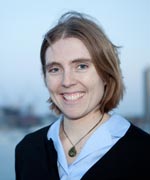 |
Amanda Cravens,Fellow,Gould Center for Conflict Resolution,Stanford Law School |
Amanda Cravens’ research explores the opportunities and limitations of using software in environmental conflict resolution processes. She also teaches courses and workshops on environmental policy, negotiation, and research design and practices as a community mediator. She originally became interested in the potential of information technology to influence environmental decisions through working as an information architect, project manager, and web editor for think-tank Resources for the Future and environmental consultancy SustainAbility. Amanda holds a MA in Geography from the University of Canterbury (New Zealand), where she was Fulbright Fellow, and a Ph.D. from Stanford’s Emmett Interdisciplinary Program in Environment and Resources. Her dissertation research explained how MarineMap, a decision support tool used to site marine protected areas along the California coast, aided participants’ problem solving, negotiation, and decision making during the Marine Life Protection Act Initiative process for which it was designed.
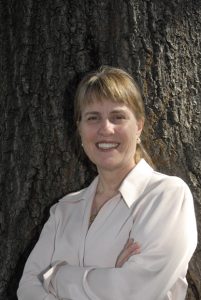 |
Marcelle Dupraw E. (Marci) DuPraw,Managing Sr. Mediator & FacilitatorCenter for Collaborative Policy |
Dr. Marcelle E. (“Marci”) DuPraw is a collaboration specialist with nearly 30 years of experience in the environmental arena. Her PhD is in Conflict Analysis and Resolution from Nova Southeastern University. Her dissertation focuses on strategies for building the capacity to collaborate at the landscape scale. Dr. DuPraw’s Master’s degree is in Natural Resource Policy, Economics, and Management from the University of Michigan. Her Bachelor’s is in Environmental Studies from the University of California. Recent groundwater-related cases include:
- The just-adopted Santa Rosa Plains Groundwater Management Plan;
- The Owens Valley Master Project, in which stakeholders have just reached agreement-in-principle on framing of a project that integrates dust control methods, exploration of groundwater use for dust control, habitat enhancement, and cultural resource protection.
Dr. DuPraw has worked overseas and with over 30 Native American tribes. She has served on the Leadership Council of the Native Network and the Association for Conflict Resolution’s (ACR’s) Environment and Public Policy Section. She currently serves on the University Network for Collaborative Governance Steering Committee, and is a member of the Large Landscape Practitioners’ Network. In 2011, she received the Sharon M. Pickett Award for Achievement in Environmental Protection through Alternative Dispute Resolution from ACR.
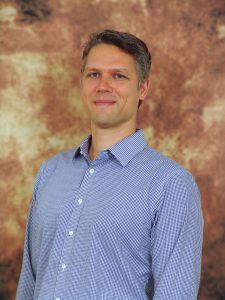 |
Erik Ekdahl,Groundwater Management Program,Office of Research, Planning, and Performance,State Water Resources Control Board |
Erik Ekdahl is the Program Manager for the State Water Board’s new Groundwater Management Unit, in the Office of Research, Planning and Performance. Erik joined the State Water Board in 2008, where he focused on nitrate and groundwater contamination issues and development of GeoTracker GAMA, an on-line data tool, as part of the Board’s Groundwater Ambient Monitoring and Assessment (GAMA) Program. Most recently, Erik was the Program Manager for the Division of Financial Assistance’s Integrated Regional Water Management and Stormwater Grant Programs. Erik is a licensed Engineering Geologist, with a Ph.D and Master’s in Geology from the University of Michigan.
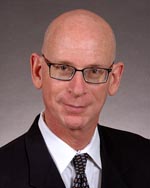 |
Barry H. Epstein,Managing Partner,Allen Matkins |
Barry H. Epstein is a partner in Allen Matkins’ San Francisco office and a member of the firm’s Land Use and Environmental & Natural Resources Practice Groups. Barry has a cross-disciplinary practice focusing on land use, water rights, natural resources, and energy law. He represents private, public, and nonprofit interests throughout California and other western states.
In the water arena, Barry represents renewable and conventional energy companies, nonprofit land trusts, developers, and agricultural and other rural landowners, as well as private water companies and public entities, with regard to surface and groundwater rights, water supply and water quality in matters involving permitting, transactions and (occasionally) litigation.
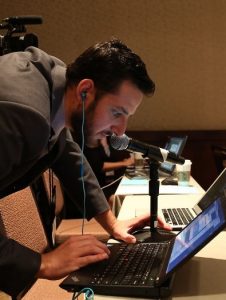 |
Jason Gershowitz,Senior Collaborative Technology Associate,Kearns & West |
Jason Gershowitz joined Kearns & West in 2013 with a background in collaborative technology, strategy, facilitation, multi-party processes, training, and issues including supply chains and sourcing, natural resources management and conflicts, renewable energy, and drinking water. Jason has a deep understanding of complex technologies that support and enhance collaboration at all levels. He applies this understanding in a way that allows him to effectively communicate technical information and alternative perspectives to a wide range of interests. Jason’s collaborative technology skills, facilitation approaches, and planning efforts have resulted in the success of numerous stakeholder meetings and processes.
 |
Andrew Girvin,Forward Deployed Engineer,Palantir Technologies |
Andrew Girvin, Ph.D., is a Forward Deployed Engineer with Palantir Technologies and leads Palantir’s work in the pharmaceutical space. He has significant experience developing applications for Palantir’s public health, environmental science and pharmaceutical deployments. Girvin’s work in the fields of cell signaling and immunology has been published in journals such as Immunity and Protein Engineering, among others. His awards and honors include a National Science Foundation Graduate Research Fellowship, and membership in Sigma Xi and Phi Beta Kappa. Girvin completed a Ph.D. in immunology at Stanford University, and as an undergraduate, studied biochemistry at Brown University.
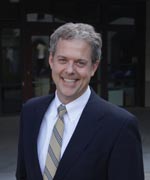 |
Burke Griggs,Non-Resident Fellow,Woods Institute for the Environment,Stanford University |
Burke Griggs is a Non-Resident Fellow at the Stanford Woods Institute for the Environment, where he contributes to its Water in the West Program. During 2013-2014, he served as Consulting Professor at the Bill Lane Center for the American West at Stanford. As an Assistant Attorney General for the State of Kansas, he represents the State in federal and interstate water matters, including groundwater-related litigation before the U.S. Supreme Court (Kansas v. Nebraska & Colorado,No. 126 Orig.), arbitration, and tribal water rights litigation. He also represents the Chief Engineer of the Kansas Division of Water Resources in intrastate water matters, and advises other state agencies in matters of water policy and legislation. He has worked closely with experts in water resources engineering, hydrogeology, groundwater modeling, and agricultural economics. Mr. Griggs earned his B.A. from Stanford, his master’s degrees and Ph.D. from Yale, and his law degree from the University of Kansas, where he teaches natural resources law as an adjunct professor.
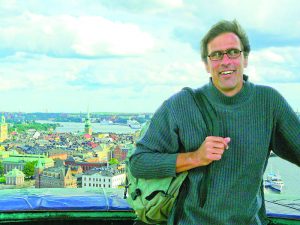 |
Jeff Loux,Director,Land Use and Natural Resource Program,University of California Davis Extension |
Jeff Loux, Ph.D. is a Department Chair, Director of the Land Use and Natural Resources Program at the University of California, Davis, Extension, and a faculty member in the Department of Environmental Design. He has worked in the public, private and academic sectors for over 30 years addressing environmental law and regulation, water policy, sustainable planning/design, and natural resource management issues, and dispute resolution and mediation projects. He directs a professional environmental and planning education program that offers 140 classes, conferences and training sessions for 4,000 professionals annually.
Dr. Loux has facilitated and/or mediated over 100 environmental, land use and water policy disputes and stakeholder processes including ten years as the mediator for the award-winning Sacramento Regional Water Forum. Other recent projects include the Hat Creek/Burney Watershed Collaborative, New River Strategic Plan, Yolo County Flood Management Program, and the Yolo County Water Resources Policy Dialogue. Prior to his university service, Dr. Loux has worked in close partnership with nearly every one of California’s environmental, land use and transportation agencies setting up complex training, education and outreach programs. Chief among these is a 12 year partnership to conduct all of the training and education for the State Water Boards and Regional Boards under the Water Board Training Academy. Dr. Loux has also developed similar training programs for Caltrans, Department of Water Resources, the Bay Delta Program, Department of Pesticide Regulation, Cal EPA, and the Office of Health Hazard Assessment.
Dr. Loux has lectured extensively and conducted research nationally and internationally (e.g. northern Europe, SE Asia, Australia), and is author of numerous books, articles and book chapters including two recent books, Water and Land Use (2004), The Open Space and Land Conservation Handbook(2011) and “Stakeholder Collaboration,” a chapter in the Cambridge University Press book, Water Resources Management (2011). Dr. Loux is the 2013 recipient of the prestigious James H. Meyer Distinguished Achievement award at UC Davis.
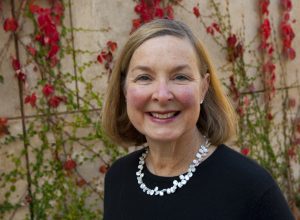 |
Janet Martinez, Director,Gould Center for Conflict Resolution,Stanford Law School |
Janet Martinez is Director of the Martin Daniel Gould Center for Conflict Resolution and Senior Lecturer in Law at Stanford Law School, where she teaches advanced negotiation, dispute system design and alternative dispute resolution law & policy. Martinez is also a Senior Advisor with LaxSebenius – The Negotiation Group in Massachusetts.
Martinez practiced corporate law in San Francisco for ten years before moving to Cambridge, Massachusetts. There, she did research, writing, and teaching in various aspects of negotiation at Harvard University’s graduate schools of business, law, and government, and completed her Ph.D. at MIT. While in Cambridge, she was Senior Associate for the Consensus Building Institute, a nonprofit provider of dispute resolution services in the public and private sectors. She conducted training courses for public and private clients, and facilitated multi-stakeholder policy dialogues involving senior diplomats, industry, government and nongovernmental officials for the World Trade Organization, UN Framework Convention on Climate Change and the United Nations.
Since returning to the San Francisco Bay Area, Martinez’ current research and consulting focus on dispute system design, international comparative dispute resolution, and negotiation curriculum development for clients in the private (corporate and law firms), public and nonprofit sectors.
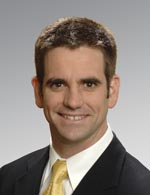 |
Russell McGlothlin,Shareholder,Brownstein, Hyatt, Farber, & Schreck |
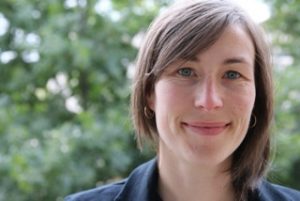 |
Tara Moran,Program Lead – GroundwaterWater in the West,Stanford University |
Tara Moran is the program lead for Water in the West’s Sustainable Groundwater program. Tara combines her passion for science with strong communication skills and a strong desire for practical groundwater management solutions. She identifies research opportunities for improved groundwater management and connects groundwater managers throughout California and the western US with groundwater researchers at Stanford University. She also works with policy makers and other agencies to advance groundwater policy for more sustainable groundwater management.
Prior to moving into the program lead role, Tara worked as a Research Associate at Stanford University deploying groundwater imaging technologies. During that time, she developed a strong sense of the challenges facing groundwater managers throughout the state and a desire to help address these issues through multi-disciplinary research efforts. Before starting at Stanford University, Dr. Moran worked with a variety of stakeholders in natural resources management, both as a consultant and academic.
Tara has published numerous research papers focusing on water resource management and water isotope thermometry. Her most recent publication, uses electrical resistivity tomography (http://gemcenter.stanford.edu) to image saltwater intrusion along the coast of Monterey Bay. Funded by a prestigious Natural Science and Engineering Research Council Canada Graduate scholarship, Tara received her doctorate in Geography from the University of Calgary, Canada. She holds a first class honors B.Sc. in Environmental Science from the University of Calgary.
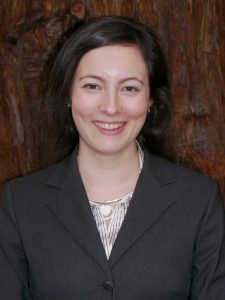 |
Rebecca Nelson,Non-Resident Fellow,Woods Institute for the Environment,Stanford University |
Rebecca Nelson is a Non-Resident Fellow of the Woods Institute for the Environment. Her work for Water in the West focuses on groundwater law and policy in California, across the West, and in Australia, with an emphasis on empirical research and practical solutions. From 2010-2014, she led Water in the West’s Comparative Groundwater Law and Policy Program, a collaboration with the U.S. Studies Centre at the University of Sydney, which focused on undertaking empirical research and convening stakeholder workshops to improve groundwater sustainability in the western U.S. and Australia. She formerly worked as a lawyer in-house at the Murray-Darling Basin Authority and in private practice in Australia. Dr. Nelson also acts as a guest lecturer in water law at the University of Melbourne and undertakes independent water policy consulting work. She publishes and presents internationally on topics related to water management, rangeland management, invasive species and endangered species. She holds a Doctor of the Science of Law from Stanford University, where her dissertation focused on empirically assessing regulatory arrangements for protecting surface water and ecosystems from the impacts of pumping groundwater. She received her Masters in law from Stanford University and BE(Environmental) and LLB from the University of Melbourne.
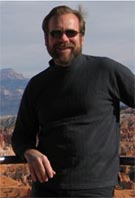 |
Tim Parker,President,Parker Groundwater |
Tim Parker is Principal Hydrogeologist, Parker Groundwater Management, California, specializing in groundwater resources assessment, development and management. His experience includes water policy analysis, strategic water resources planning, groundwater management plan development and program implementation, regional and project scale groundwater monitoring for quantity and quality, and groundwater recharge & storage projects. He formerly worked for Schlumberger Water Services bringing oil and gas industry geophysical tools and technologies to water industry clients, and prior to that he was with the California Department of Water Services Conjunctive Water Management Program. Tim serves Groundwater Resources Association of California as Director and Legislative Chairman, California Groundwater Coalition as Director, and National Ground Water Association as Scientist’s and Engineers Division Director. Tim is also actively involved with the Association of California Water Agencies Groundwater Committee activities. He is principal writer on Sustainability from the Ground Up, Groundwater Management in California, a Framework (ACWA 2011), and co-authored the books Potential Groundwater Quality Impacts Resulting from Geologic Carbon Sequestration (WRF 2009), and California Groundwater Management (GRA 2005).
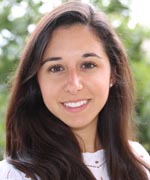 |
Debra Peronne,Postdoctoral Fellow,Water in the West,Stanford University |
Debra Perrone is a postdoctoral scholar at Water in the West. She is interested in the multifaceted, interrelationship between water, energy, and food resources. Her research explores how the interactions among these resources affect decisions and tradeoffs involved in water resource management. At Stanford, she is part of an interdisciplinary team that is developing a Western Water Dashboard. Environmental, economic, and socio-political data will be mined, compiled, and analyzed to identify factors that influence water use; the main objective of this work is to create helpful and useful visualizations for water-use stakeholders at all levels. Debra received her undergraduate degree in Civil & Environmental Engineering from Lafayette College and her PhD in Environmental Engineering from Vanderbilt University, where she was a fellow of Vanderbilt Institute for Energy and Environment. Debra graduated in May 2014 and was the Graduate School’s Founder’s Medalist for First Honors.
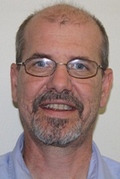 |
David Purkey,US Water Group Leader,Stockholm Environment Institute – US Center |
Since 2006 David Purkey has led the Water Group within the U.S. Center of the Stockholm Environment Institute, working out of the SEI-US office in Davis, California. One of his most important activities is managing the development of the Water Evaluation and Planning (WEAP) system and the support of the more than 15,000 members of the global WEAP user community. WEAP is a flexible and accessible modeling platform that supports efforts to identify innovative water management solutions within a scenario based analysis framework. Relevant for this workshop, WEAP has been enhanced to link dynamically with the USGS MODFLOW groundwater modeling tool to facility scenario based exploration of groundwater management strategies, a functionality that has been used extensively by WEAP users in the Middle East and North Africa. More recently, David has been working to improve the ways in which models such as WEAP can be integrated within formal decision support processes, specifically in the application of RAND’s Robust Decision Making framework within basin planning processes in California and in the Andes. David earned his B.A. in Geology from Carleton College and completed an M.S. in Water Science and a Ph.D. in Hydrologic Sciences at the University of California, Davis.
 |
Jack Rice,Associate Counsel,California Farm Bureau |
Jack Rice is an Associate Counsel of the California Farm Bureau Federation. He represents Farm Bureau membership in a variety of environmental matters, with a particular focus on water and endangered species issues. Jack grew up in agriculture, and maintains those roots with a small hay and cattle operation in Humboldt County and a grassfed beef business. He is a graduate of the University of California at Davis School of Law.
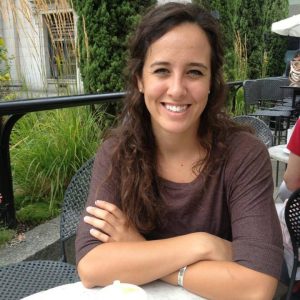 |
Melissa Rohde,Researcher,Water in the West |
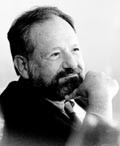 |
Daniel P. Sheer,President,HydroLogics |
Daniel P. Sheer is the founder and President of HydroLogics. He has a Ph.D. with honors from the Johns Hopkins University in 1974. As Technical Director of the Interstate Commission on the Potomac River Basin, he led the effort that led to a long term water supply solution for the Washington Metropoliton Area. He directed the implementation of that solution.
In 1985 Dr. Sheer founded HydroLogics. He helped create the Southern Nevada Water Authority and the Kansas River Water Assurance District. Dr. Sheer has been involved in planning and operations for South Florida. His models of the Delaware, Susquehanna Basins, and the NYC water supply system and the Yellow River (China) are still in use. He is currently working on the Apalachicola-Chattahoochee-Flint and Alabama-Coosa-Tallapoosa Basins for the Atlanta Regional Commission and the South Saskatchewan River Basin in Alberta.
Dr. Sheer’s work in the development of water resources modeling technology and the use of Computer Aided Negotiation and Operations Exercises is widely recognized. His work on HydroLogics’ OASIS modeling system led to a U.S. Patent. He has received Best Journal Paper citations from both AWWA and ASCE, was a founding member of the National Research Council Water Science and Technology Board.
 |
Leon Szeptycki,Executive Director,Water in the West,Stanford University |
Leon Szeptycki is an attorney who specializes in water quality, water use and watershed restoration. His work includes issues related to stream flow restoration in the context of the western appropriative rights system and increasing human demands on water. Over his career, Leon has worked on a broad range of matters related to the restoration of river health and water quality on a landscape scale.
From 2006 until 2012, Leon taught at the University of Virginia School of Law, where he ran the Environmental Law and Conservation Clinic and helped create an interdisciplinary course in conservation for students in the environmental sciences department and the law school. Prior to that, he spent 10 years with Trout Unlimited, a national conservation organization devoted to the protection and restoration of trout and salmon rivers. While at Trout Unlimited, Leon helped develop innovative legal and policy tools for voluntary watershed restoration by a variety of means, include dam removal and reclamation of abandoned mine sites. He has also worked in private law practice and at the U.S. Department of Justice. Leon received his B.A. from the University of Kansas and his J.D. from Yale Law School.
 |
Barton “Buzz” Thompson,Perry L. McCarty Director,Woods Institute for the Environment |
Buzz Thompson is the Robert E. Paradise Professor in Natural Resources Law at Stanford Law School and the Perry L. McCarty Director of the Woods Institute for the Environment at Stanford University. He is also a senior fellow in both the Woods Institute and the Freeman-Spogli Institute for International Studies. Professor Thompson helped found the Woods Institute for the Environment and has served as director since the institute’s creation in 2004. He previously served as Vice Dean of Stanford Law School and started the Law School’s Environmental and Natural Resources Law & Policy Program (ENRLP). Professor Thompson is an expert in water law and has written dozens of articles and books on the subject. His recent books include Legal Control of Water Resources, which is now in its fifth edition, as well as Managing California’s Water: From Conflict to Reconciliationwith Ellen Hanak, Jay Lund, and others. Much of his scholarship has focused on water markets and alternatives to traditional water regulation. He currently serves as Special Master for the United States Supreme Court in Montana v. Wyoming, an original jurisdiction dispute involving the waters of the Yellowstone River system. Professor Thompson chairs the boards of the Resources Legacy Fund and the Resources Legacy Fund Foundation, serves as a California trustee for The Nature Conservancy, and is a member of the boards of the American Farmland Trust and the Sonoran Institute. He is a former member of the Science Advisory Board of the United States Environmental Protection Agency. He received his A.B. (Economics and Political Science), M.B.A., and J.D. degrees from Stanford University. Prior to joining the Stanford faculty, he clerked for then-Justice William Rehnquist of the United States Supreme Court and was a partner with O’Melveny & Myers in Los Angeles.
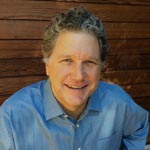 |
Dan Wendell,Associate Director,The Nature Conservancy |
Dan Wendell is a Senior Scientist for groundwater and water resources with the Nature Conservancy in California. He has BS and MS degrees in Geology, an MS in Hydrogeology, and is a Registered Geologist and Certified Hydrogeologist in California.
During 30 years of professional work, many with an international consulting firm as “Global Technology Leader for Groundwater,” Dan conducted local and regional hydrostratigraphic studies of groundwater basins; developed conceptual and numeric groundwater flow, solute transport, and land subsidence models; performed “safe yield” investigations; designed and constructed high-capacity municipal water supply wells, “Aquifer Storage and Recovery” (ASR) wells, and injection wells; developed large-scale integrated water supply management plans; and worked on numerous conjunctive use projects, including those using reclaimed water.
Dan’s work has brought him across the world, including: identifying water supply well sites in the West Bank of Palestine; assessing and reconditioning several large wellfields near the Aral Sea, Kazakhstan; and evaluating the feasibility of ASR operations in the Chalk Aquifer of southern England. His groundwater work in California includes: basinwide modeling of the Central Valley, and modeling, well construction, and groundwater management projects in the San Diego, Los Angeles, Ventura, Santa Barbara, San Francisco, and Salinas areas.
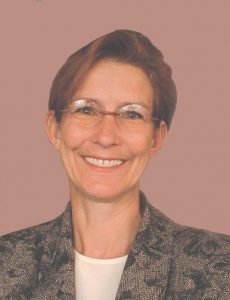 |
Anna West,Principal,Kearns & West |
Anna West is a principal and co-founder of Kearns & West, with more than 30 years of experience using facilitation, mediation, and public engagement to generate collaborative solutions in the fields of water, energy and the environment.
Anna has designed and managed a variety of collaborative programs, including a recent effort to develop policy recommendations on California groundwater management for the California Water Foundation, a current collaborative process to develop recommendations to Stanford University on Alternatives for the Searsville Dam, and a negotiation to extend the term and financial aspects of the State Water Project between the California Department of Water Resources and the 29 State Water Contractors. Recent assignments include a negotiated a process to establish new federal rules for hydroelectric relicensing, a collaborative process in the Lake Tahoe Basin for the Army Corps of Engineers, and stakeholder engagement for an historic dam study on the Klamath River for the Department of Interior’s Secretarial Determination.
Anna has coordinated complex collaborative processes addressing the National Environmental Policy Act, State Environmental Policy Acts, Endangered Species Act, the Federal Power Act, and the Clean Water Act.
Anna is certified as a senior mediator by the U.S. Institute for Environmental Conflict Resolution.
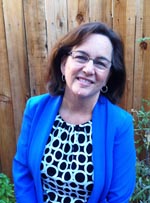 |
Kate Williams,Program Manager,California Water Foundation |
Kate Williams develops, implements, and oversees water management strategies and projects for the California Water Foundation program (CWF), an initiative of Resources Legacy Fund. Most recently, she was the lead at CWF to develop and promote passage of the Sustainable Groundwater Management Act. Before joining Resources Legacy Fund, Kate worked for more than 30 years in numerous roles in natural resource management and legislation. She worked as principal consultant on natural resource management and comprehensive water legislation to California Assembly members John Laird and Jared Huffman. Kate also served as assistant director of policy and finance and as restoration coordinator for the CALFED Bay-Delta Program. She also served as wetlands coordinator for the California Department of Water Resources and as senior fiscal and policy analyst at the California Legislative Analyst’s Office. Kate received her MPA from the University of Washington and a BS in environmental planning and management from UC Davis.
 |
Derrik Williams,President,HydroMetrics Water Resources Inc. |
Derrik Williams is a California Professional Geologist and Certified Hydrogeologist with over 27 years of experience in applied geology and hydrogeology. He is the President of HydroMetrics Water Resources Inc.: an Oakland-based science and engineering firm that assists public agencies and private clients with developing, protecting, and managing groundwater and surface water resources. He has worked throughout the State and the Western U.S. managing, reviewing, and assisting on groundwater management projects. He has additionally managed numerous groundwater recharge, wastewater disposal, and hazardous waste remediation projects. Derrik is accomplished in analytical hydrogeology, with extensive interpretation and application of groundwater flow and transport models.
As a member of the Groundwater Committee of the Association of California Water Agencies (ACWA) since 2008, Derrik helped shape the California Statewide Groundwater Elevation Monitoring Program (CASGEM) and helped develop ACWA’s Groundwater Framework document. Recently, Derrik drafted ACWA’s Guidelines for Groundwater Monitoring.